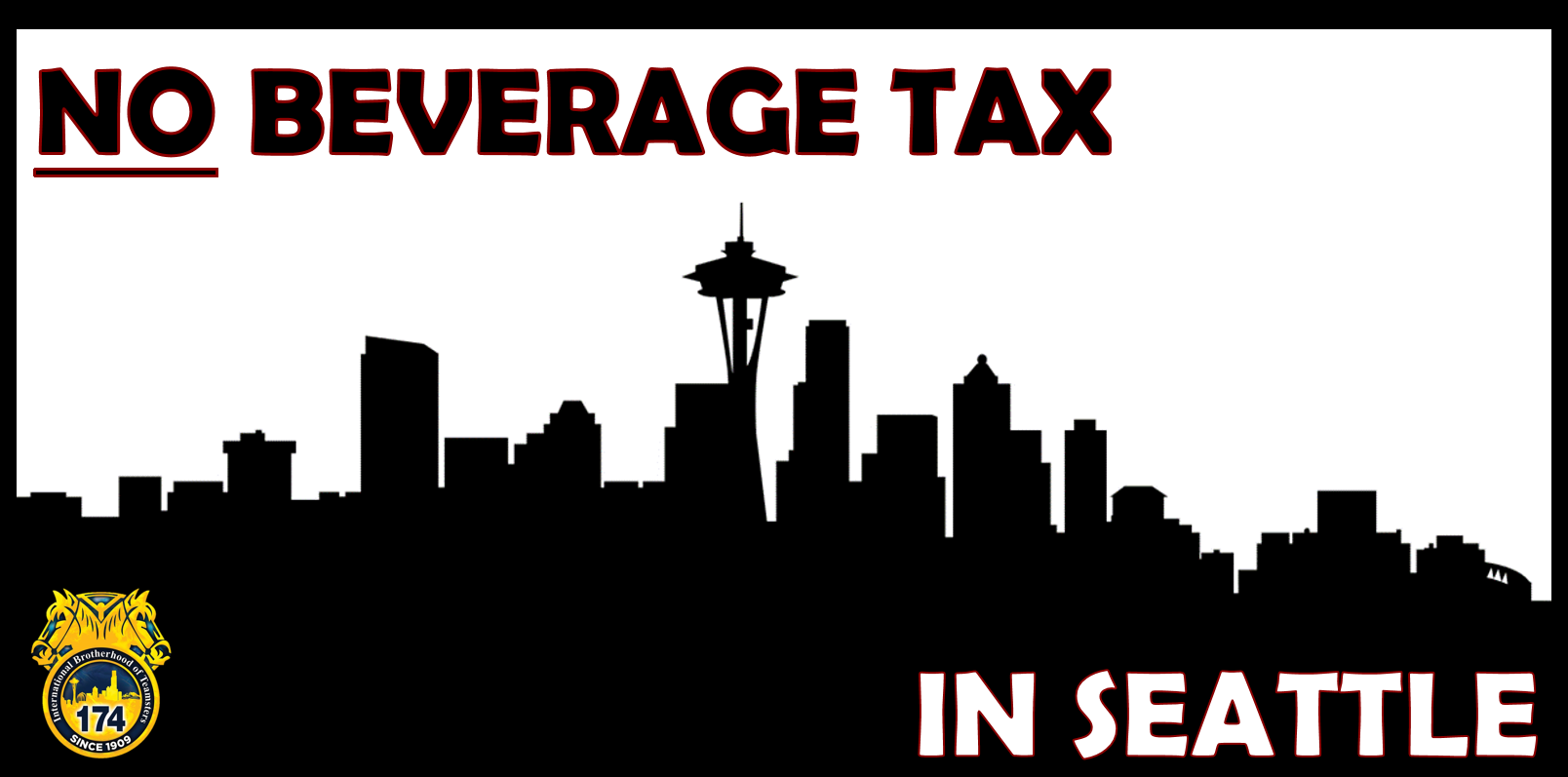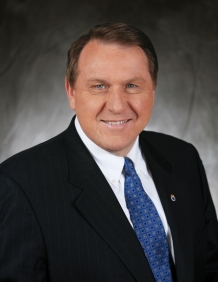[precontent]

[/precontent]
 An Op-ed by Local 174 Secretary-Treasurer Rick Hicks
An Op-ed by Local 174 Secretary-Treasurer Rick Hicks
The tax on sugar-sweetened beverages proposed by Seattle Mayor Ed Murray is a disaster in waiting for local workers, businesses and families. On its surface, the tax may sound like a good idea: fighting the obesity epidemic while funding education at the same time – who wouldn’t like that? But the reality is that it is working families who will end up shouldering the heavy burden of this proposed tax.
Similar taxes have already been implemented in other major cities in the United States, and the effects have been devastating to workers. Teamster families at Local 830 in Philadelphia have already begun to feel the negative impacts that this tax creates, as Philadelphia started collecting a 1.5 cents-per-ounce tax on sugar-sweetened and diet beverages on January 1, 2017.
Since then, Local 830’s Principal Officer Danny Grace reports that: Beverage companies as a whole have seen their sales decrease between 40%-54%; Pepsi Philadelphia has announced a first round of layoffs of between 80-100 employees, and Teamster commissioned salespersons for Pepsi have seen their weekly take home pay decrease between 50% to 70% due to lost sales in the market; Coca-Cola has initiated layoffs of approximately 30% of its work force in Philadelphia; Canada Dry/7-UP and Dr. Pepper has initiated layoffs of 35 Employees.
All of these job losses have come from a tax of 1.5 cents-per-ounce – but Seattle Mayor Murray has proposed a tax of 2 cents-per-ounce. That is 33.3% higher.
Since this tax would only apply within the city limits of Seattle, the results are easy to predict: consumers will take their business outside the city. Two cents may not sound like much, but to put it into perspective, this proposed tax would increase the average cost of a two-liter bottle of soda by 87%, a 12-pack of soda by 44%, and a 24-pack by 72%. To anyone shopping on a budget, price increases of this magnitude are worth shopping elsewhere to avoid. This means that grocery stores within the City of Seattle will also face falling revenues, costing jobs.
And what about Seattle’s growing restaurant industry? This tax would increase the cost of such beverages by an average of 25%. Most of Seattle’s restaurants are family-owned small businesses for whom this tax’s negative impacts cannot be ignored. At the very least, businesses will see decreasing restaurant revenue spent by customers. Or worse, customers will choose to eat outside the city altogether.
There is no denying that there is an obesity epidemic in this country. But the way to fight that isn’t by destroying good family-wage Union jobs while at the same time taking money out of the budgets of the poorest among us. Mayor Murray’s goal may be noble, but his approach is all wrong.
We at the Teamsters cannot and do not support a tax that will put hardworking members of our communities out of a job, no matter how well-intentioned the tax may be.
Rick Hicks is the Secretary-Treasurer of Teamsters Local 174 and the President of Teamsters Joint Council 28, which represents 55,000 workers across Washington, Alaska, and the Idaho Panhandle.
[divider]
 Click here to read about Seattle’s proposed beverage tax and how similar taxes have already affected Philadelphia.
Click here to read about Seattle’s proposed beverage tax and how similar taxes have already affected Philadelphia.
[divider]
 Click here to read about Teamsters Local 174’s opposition to the proposed Beverage Tax and see photos from a press conference against the tax.
Click here to read about Teamsters Local 174’s opposition to the proposed Beverage Tax and see photos from a press conference against the tax.
[divider]
 Click here to read Teamsters General President James P. Hoffa’s letter to Seattle Mayor Ed Murray and the Seattle City Council calling on them to find other ways of dealing with Seattle’s budget shortfalls rather than this tax.
Click here to read Teamsters General President James P. Hoffa’s letter to Seattle Mayor Ed Murray and the Seattle City Council calling on them to find other ways of dealing with Seattle’s budget shortfalls rather than this tax.
